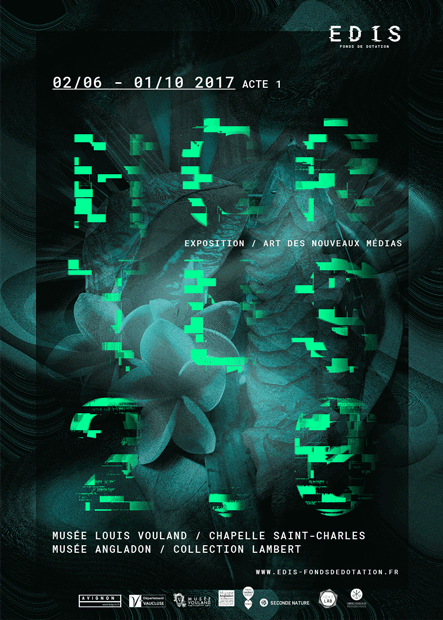
From 02 June to 1st October 2017, EDIS, which has supported the art of new media since 2012, is organizing the exhibition Hortus 2.0. Distributed on several sites in the heart of Avignon, the exhibition installs its epicenter at the Louis Vouland Museum to radiate on two places, the chapel Saint Charles and the Museum Angladon. A performance will also be presented at the Lambert Collection.
The garden and its many marvels and artistic metamorphoses are the red thread, echoing the frescoes of the Palais des Papes and the Avignon’s secret gardens. This theme nourishes the various artistic appropriations and gives to the public an opportunity to meet the heritage riches of the city.
The exhibition at the Louis Vouland Museum features thirty works, some of which are specifically created for this exhibition. The national and international artists presented at the exhibition question our idea of the garden, the profusion and the vulnerability of nature. They explore the potential of new technologies and scientific research to create material or intangible and interactive or generative works.
In the heart of the Chapelle Saint-Charles, EDIS, in co-production with Seconde Nature, Hexalab, presents “Pleasant places”, a monumental video installation by the Italian artist Davide Quayola, who transforms a piece of nature into a pure moving abstraction, spectacular and immersive. At the Angladon Museum, Vincent Broquaire unfolds his graphic, funny and surprising world, revealing the micro-technological worlds that can hide behind simple plants. The duo Scenocosme will present the work “Akousmaflore” representing a garden composed of real musical plants reactive to our borders. Miguel Chevalier will present many works that take roots in art history by diverting the induced logics by the computer such as hybridization, generativity, and interactivity.
The course crosses many approaches: from the garden of delights and vanities to the garden as a place of memory and refuge, from ecological balance to technical experimentation, Hortus 2.0 invites the visitor to apprehend his own perception of the garden facing to different artistic writings and technological transformations of the contemporary world.
Exhibition website here





